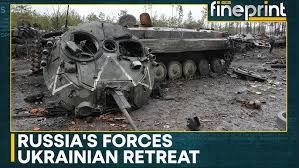Aug. 20—New details have emerged about the recent meeting between President Donald Trump and the European leadership of NATO, and the Ukrainian dictator Volodymyr Zelenskyy that reveal that President has totally walked away NATO demands for a ceasefire that have sabotaged previous negotiations. Trump has properly identified that his goal is not merely to stop the fighting, but to create the basis for a permanent peace that removes the basis for future conflict.
The President, said a source close to the White House, "has told Europe that he wants to end a war that NATO deliberately provoked, and now has lost, against Russia. He sees no reason for conflict with the Russians except the paranoid and insane views of the British and French, and especially the Germans, that the Russians want to invade and take over Europe. He rejects this analysis, and says America is not going to engage in confrontation with Putin and Russians and instead seeks normal and peaceful relations with its fellow nuclear superpower. This has prompted the NATO leadership to say that Putin has brainwashed Trump. But what they say, and what they think no longer really matters. Trump has asserted that he, the President of the United States, is control of the agenda and his is an agenda for peace.
"This has caused Zelenskyy to do some thinking," said the source. "He has been propped up by the NATO war party and their allies in the U.S., including in the State Department. But if Trump is asserting control over this process, and wants a peace deal, does Zelenskyy's future best lie with Europe, or with Trump? Trump told him that he will protect him if he accepts the peace deal being negotiated. And he also told him that nothing will save him if he tries to sabotage it. Zelenskyy knows that the U.S. and Trump know that much of the money and aid sent Ukraine has "gone missing,' and has been stolen by the massively corrupt Ukrainian political machine which Zelenskyy nominally heads. Trump keeps reminding him that he really has no cards to play. There is reason to believe that the message is getting through."
In Saturday's meeting, Trump shot down the European demand for a ceasefire in Ukraine. It was prompted by a comment from German Chancellor Friedrich Merz, who said: “I can’t imagine that the next meeting [between Putin and Zelenskyy] would take place without a ceasefire. So, let’s work on that, and let’s try to put pressure on Russia, because the credibility of these efforts, these efforts we are undertaking today depend on at least a ceasefire from the beginning.” Trump responded immediately: “In the six wars that I’ve settled, I haven’t had a ceasefire. We just got into negotiations. If we can do the ceasefire, great, and if we don’t do a ceasefire, because many other points were given to us, many, many points were given to us—great points,” Trump said. He called instead for a full peace agreement.
Trump had begun the meeting by confidently saying he was “optimistic” that a deal could be made that would deter future aggression against Ukraine. He then added: “I actually think there won’t be [any future aggression by Russia]. I think that’s … largely overrated.” As far as security guarantees go, he said that “European nations are going to take a lot of the burden. We’re going to help them, and we’re going to make it [the deal] very secure. We also need to discuss the possible exchanges of territory, taking into consideration the current line of contact. That means the war zone, the war lines.”
When media asked about such security guarantees for Ukraine, White House Press Secretary Karoline Leavitt said that President Trump is talking to both Russia and Ukraine about this, and “has directed his team to come up with a framework for these security guarantees that can be acceptable to help ensure a lasting peace and end this war.”




